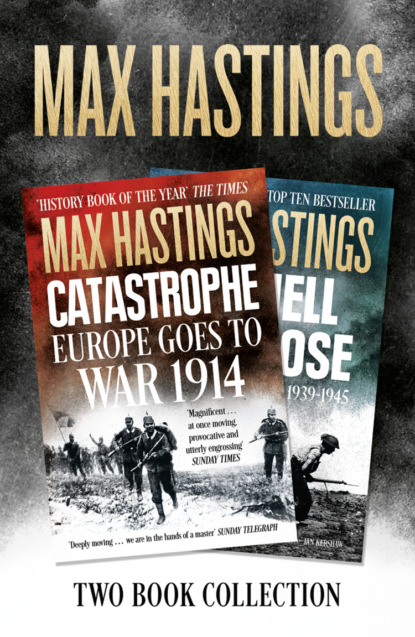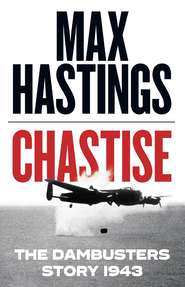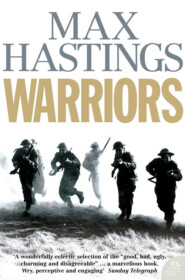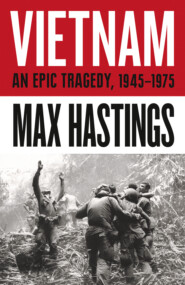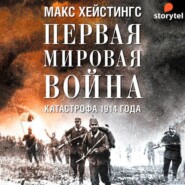По всем вопросам обращайтесь на: info@litportal.ru
(©) 2003-2024.
✖
Max Hastings Two-Book Collection: All Hell Let Loose and Catastrophe
Настройки чтения
Размер шрифта
Высота строк
Поля
On 6 April, thirty-three German divisions, six of them armoured, swept into Yugoslavia, easily overwhelming its army. A Luftwaffe bomber attack on the capital killed 17,000 people, an appalling toll which reflected its citizens’ absolute unpreparedness for their fate. Six days later the invaders occupied the city, and on 17 April the Yugoslavs capitulated.
A 56,000-strong British-led force, mostly composed of Australians and New Zealanders, began to land in Greece in March, to deploy in the northeast. Churchill’s insistence on committing imperial troops at the discretion of British commanders provoked serious and understandable dismay among the leaders of the white dominions. In theory, Canadian, Australian and New Zealand formations could be deployed only with the express sanction of their home governments. But, especially in 1940–41 before dominion ministers dug in their heels against abuses of their constitutional rights, such approval was often sought only retrospectively. The Australian prime minister, Robert Menzies, attended the 24 February 1941 British War Cabinet meeting at which the decision was made to dispatch an army to Greece; but he and his fellow ministers were wilfully misled about the opinions and fears of commanders in the theatre, including their own most senior officers. Only after the first New Zealand soldiers had been in Greece for some weeks in December 1940 did their government in Auckland learn of the fact. Anzac rather than British forces were called upon to bear the chief burden of the most hazardous Allied military gamble of the Mediterranean campaign, serving under a British commander-in-chief. Australian politicians, in particular, were deeply dismayed.
Anzac soldiers, however, cherished more innocent sensations. The New Zealanders were voyaging towards their first battlefield; like most young men in such circumstances, they revelled in excited anticipation and exotic sensations, oblivious of peril. Lance-Bombardier Morry Cullen wrote home euphorically about the thrill of sailing the Mediterranean: ‘I have never seen such beautiful shades of blue, from a light sky shade to the deepest blue black and there was hardly a ripple on the water.’ Private Victor Ball wrote in his diary about Athens: ‘Best place we have been in and people very friendly. Had a look at the Acropolis, the old ruins of Athens…The brothel area is a lot cleaner than Cairo. We got very drunk but got home alright.’ Lt. Dan Davin reflected later: ‘We were all absolutely the picture of youth and health…There’s a sort of natural courage in people who’ve been fed all their lives on good meat.’ These dominion troops approached their first experience of war with a confidence and enthusiasm that persisted, in remarkable degree, through the ordeal which now began to unfold. Some of their officers, however, were more cynical: Gen. Sir Thomas Blamey, the seedy old reprobate commanding the Australian corps – ‘a coward and not a commander’, in the words of one of his staff officers – spent 26 March reconnoitring possible evacuation beaches in southern Greece.
The Germans invaded on 6 April 1941, simultaneously with their assault on Yugoslavia. They cited the British presence to justify their action: ‘The government of the Reich has consequently ordered its armed forces to expel British troops from the soil of Greece. All resistance will be ruthlessly crushed…It is emphasised that the German army does not come as an enemy of the Greek people, and it is not the desire of the German people to fight Greeks…The blow which Germany is obliged to strike on Greek soil is directed against England.’ British forces were spread far too thin to check the invaders. Where Germans met resistance – and there were some stubborn little stands – they merely pulled back and probed until they found a gap elsewhere.
New Zealander Victor Ball described the first stage of what became a long, painful withdrawal: ‘We were followed by shellfire the whole way, wherever we went they shelled us. One chap killed outright just alongside me – hit in the throat – and quite a few hit with bits of shale and stone. Planes coming over one at a time bombing and machine-gunning. Things sure get on your nerves when you can’t fight back.’ Russell Brickell, another New Zealander, reflected on the experience of being dive-bombed: ‘It’s a peculiar feeling, lying on one’s tummy in a trench or ditch listening to the scream of an approaching bomb, a second’s silence as it hits the ground, then the earth comes up and hits one in the face and there is a tremendous woomph! and bits whistle through the air.’
German forces were soon pouring through the Monastir Gap on the Yugoslavian border, threatening the rear of the Greek positions in Albania. Allied forces fell back southward in increasing disorder, outnumbered, outmanoeuvred, and naked against air attack. An Australian medical officer described how ‘the patter of feet, human and animal, could be heard all night long’ as the Greek retreat became a panic-stricken rout. Everywhere in the path of the Axis advance, communities were visited by scenes of horror. A column of Italian prisoners being marched under escort through a village was suddenly enveloped in mortar and artillery fire, which killed and wounded dozens. An old woman, who had lost her eldest son Stathi in Albania, began to sob. A café owner urged her now to check her tears for the Italians: ‘They were the ones who killed your son.’ She ignored him, and ran to a soldier torn open by shrapnel, who lay crying: ‘Bread, mother!’ The old woman tried to wash his wounds with a cloth dipped in raki, still sobbing and talking to the man: ‘Don’t cry, Stathi. Yes, I am your mother. Don’t cry. I’ve got both bread and milk.’
The Greek army had exhausted itself confronting the Italians through the winter. It lacked transport for rapid manoeuvre. The Germans ruthlessly exploited their dominance of the air, especially effective in a country with few roads. ‘During the afternoon we had our first look at the great Jerry Luftwaffe,’ wrote Australian Captain Charles Chrystal. ‘190 bombers came over and bombed…till there was not a thing left. They flew in close formation…and I can tell you we simply gasped in amazement and were absolutely spellbound to see such numbers.’ Although the Australians and New Zealanders conducted some determined little rearguard actions, on 28 April the first major naval evacuations began, from Rafina and Porto Rafti. The Germans fanned out across the Peloponnese, where the Royal Navy took off troops from Nauplia and Kalamata.
Citizens in uniform, until with time they grow the skins of soldiers, are shocked by the waste created by war. Among many Anzacs’ most vivid memories of the retreat from Greece was the colossal detritus of wrecked and abandoned vehicles, guns, stores, wirelesses, range-finders – millions of pounds’ worth of scarcely used equipment, ditched by the roadsides of the Peloponnese. Men boarding the Royal Navy’s ships were ordered to discard weapons, especially machine-guns and mortars, which they had stubbornly retained through the retreat. This policy had serious consequences for the defence of Crete a few weeks later. Most fugitives suffered a sense of shame about abandoning the local people, who embraced them even in defeat.
The Invasion of Greece (#ulink_94313c12-0e4d-5dc9-ac5a-7a3bd06d8777)
By April’s end, the Germans held Greece. Some 43,000 of Wavell’s troops had been evacuated, leaving behind a further 11,000 who became prisoners, together with all their transport and heavy equipment. Prime minister Alexandros Koryzis committed suicide. Greek soldiers trickled down from the hills, many having abandoned their arms. ‘At one moment,’ wrote an eyewitness, ‘I saw a captain mount a hillock and address thousands of men who were gathered around it. He shouted: “Men, alas our country has lost the war!” The audience responded with an eerie, nightmarish, perverse cry of “Zeto!” – “Hurrah!” “Zeto!” meant “We are alive!”’
Such deliverance provided only brief consolation to a nation which thereafter suffered appallingly under Nazi occupation. A Greek general told an air force officer, George Tzannetakis: ‘George, a black night descends on our country.’ In the capital on 27 April, a German officer, Georg von Stumme, addressed Greek Archbishop Ieronymos: ‘He began by saying that he had always wanted to visit Athens, of which he had learnt so much at school and Military Academy. At this point the Archbishop interrupted him and said: “Indeed, before the war Germany had many friends in Greece, among whom I was one.”’ Now, all that was over. A Greek wrote: ‘Von Stumme learnt that in Greece he might meet a few Quislings, but he would not find any friends.’
Three weeks later, on 20 May, the Germans launched a paratroop assault on Crete. British and New Zealand defenders along the island’s north coast fought staunchly on the first day, inflicting savage losses on the airborne invaders. But on the 21st the Germans secured Maleme airfield, opening the way for follow-up forces. British counter-attacks were frustrated, and in the succeeding six days the paratroopers progressively rolled up the defences, relieving their units isolated at Retimo and Heraklion. The British fell back. ‘Everyone was exhausted…and by this time morale was pretty low,’ said Ian Stewart, a battalion medical officer. ‘It cannot be said to have been a particularly restful trip…up the very high mountains, going mostly at night in a very slow tread and just the jingling of waterbottles and occasionally stumbling over people who had fallen out. Perhaps the most evocative thing was the dew on the flowers…the very aromatic scents of Crete are unforgettable.’ Another officer observed, ‘It was a journey that showed human nature at its Christian best but also at its ugly, selfish worst.’ Gen. Bernard Freyberg, the New Zealander commanding the defence, decided that evacuation was the only option. By the night of 30 May, when the Royal Navy was obliged to abandon its costly rescue efforts, 15,000 troops had been taken off; a further 11,370 became prisoners and 1,742 had been killed. A New Zealander heard the order given to those left behind to surrender. ‘Everything was dead quiet. You could have heard a pin drop. Every man was left to his own thoughts, that is if they could think. Now and again you would hear a shot ring out further down the waadi – some poor chap was taking his own life. Then later on I heard my first German’s words: “Alle man raus, schnell, schnell,” and I looked up and saw him standing there, rifle at the ready. We were marched back to Canaea like a mob of sheep.’
Crete cost Admiral Cunningham three cruisers and six destroyers sunk, seventeen other ships damaged – the navy’s heaviest losses of the war in a single operation. The Germans lost 6,000 killed, a price which dissuaded Hitler from ever again attempting a large-scale airborne operation. But the immediate outcome was that the invaders had defeated a larger Allied army, provided through Ultra intercepts with detailed foreknowledge of German intentions, plans and timetable.
Freyberg, as commander, bore substantial responsibility for failure, but he was handicapped by lack of transport to shift men, and a dire shortage of radios. Once the battle began, he had neither a clear idea of what was happening, nor means to pass orders. The Luftwaffe exercised almost unchallenged command of the skies, taking a heavy toll on morale as well as men and ships. German energy, skill, tactics, determination and leadership at all levels surpassed those of most of the defenders, despite some fine local stands, especially by New Zealanders.
Hitler would have secured a much greater strategic gain by using his paratroops to seize Malta, as they could probably have done. The Germans profited little from accepting responsibility to sustain an occupation of Crete amid a bitterly hostile population. If Freyberg had held on, the Royal Navy would have faced immense difficulties in supplying the island in the face of enemy air superiority. Once Greece was lost, the outpost could have done the British little good. They lacked adequate aircraft to support the North African campaign, far less to exploit Crete as an air base for offensive operations, and were better without the place.
However, no such consolation was evident to the world and the British people in June 1941. A soldier at home, Len England, wrote on 29 May: ‘I think…the masses have for the first time considered the possibility of defeat. A general trend is this: “Every time we meet the Germans we get driven back. We’re even losing on the sea, and we’re supposed to have command of that.” The infallibility of the Germans is an idea that is rapidly gaining ground.’ Churchill had boldly declared Britain’s determination to hold Crete, yet its garrison had been defeated by smaller forces. Though the prime minister for years afterwards sustained his enthusiasm for resurrecting a Balkan front against Hitler and bringing Turkey into the war, this remained a fantasy. The Balkans were incorporated wholesale into the Axis empire, much to its own detriment. Italy initially accepted responsibility for occupying the region, committing half a million troops who would eventually suffer heavier losses there than in North Africa. The Germans, in their turn, came to find Greece and Yugoslavia a crushing burden. But all this was far away, in the bleak summer of 1941.
3 SANDSTORMS
The British achieved two modest successes to set against their eviction from the Balkans. Though Iraq had become an independent state in 1932, the British retained treaty and basing privileges there, to protect their important oil interests. Since the outbreak of war, rival factions in Baghdad had contested power and disputed the merits of supporting the Axis. In April 1941 the pro-Nazi nationalist Rashid Ali became prime minister following a military coup. Impressed by Hitler’s successes, and insufficiently mindful that Berlin was far away, he abrogated British military movement rights and sent troops to besiege the RAF base at Habbaniya. Luftwaffe planes began to shuttle aid to the Baghdad government through Syria. The Vichy French authorities in Damascus provided fighter escorts and some materiel to aid the Germans. Wavell, in Cairo, was reluctant to divert troops to Iraq, but Churchill insisted. An Indian Army relief column landed at Basra and drove inland, joined by 1,500 men of the Arab Legion from Transjordan. The Iraqi army offered only ineffectual resistance. Within a month Habbaniya was relieved and an armistice signed. A pro-British government was installed in Baghdad, which was eventually persuaded to declare war on the Axis.
Vichy’s meddling in Iraq, and a growing German presence in Syria, convinced Churchill that Britain could not risk Nazi dominance of the Levant. He ordered Wavell to dispatch another force to occupy Syria, ruled by France since 1920 as a League of Nations ‘mandated territory’ joined with Lebanon. Churchill and his commanders hoped that the defenders, outnumbered and outgunned, would offer only token resistance. Instead, however, in June 1941 Vichy forces fought hard. Their conduct highlighted the division and confusion of French loyalties, which had been apparent since the 1940 surrender, and persisted until 1944. During the ill-fated British and Gaullist attempt on Vichy Dakar in September 1940, the submarine Bévéziers torpedoed the British battleship Resolution, which suffered serious damage. Churchill enraged the French by insisting on the award of a DSO to Commander Bobby Bristowe, who led a volunteer naval party in a launch alongside the brand-new Vichy battleship Richelieu, laying four depth-charges below its hull. In retaliation for Dakar, Vichy aircraft bombed Gibraltar.
A farcical exchange took place when Hitler met Marshal Pétain at Montoire-sur-le-Loir on 24 October 1940. Germany’s Führer said: ‘I am happy to shake the hand of a Frenchman who is not responsible for this war.’ His words were not translated, and Pétain supposed that he was being asked a polite question about his journey. He responded: ‘Bien, bien, je vous remercie.’ Even if the marshal did not intend to sound so slavish, his regime pursued policies and adopted a propaganda line strongly hostile to the British. Admiral René Godfroy, commanding a French squadron interned at Alexandria which resolutely resisted the Royal Navy’s blandishments to join its struggle, wrote to the Mediterranean C-in-C on 26 June 1940: ‘For us Frenchmen the fact is that a government still exists in France, a government supported by a parliament established in non-occupied territory and which in consequence cannot be considered as irregular or deposed. The establishment elsewhere of another government, and all support for this other government, would clearly be rebellion.’
Frenchmen everywhere took sides, displaying bitter animosity towards those who made a different choice. Aboard the French mine-laying submarine Rubis a vote was held in which all but two of its forty-four crew opted to fight alongside the British. By contrast, in November 1940, 1,700 French naval officers and men exercised the right to repatriation which the British conferred on them. Their new friends the Germans responded uncharitably, torpedoing off the French coast the hospital ship carrying them home under the red cross. Four hundred drowned, but a survivor, Commander Paul Martin, wrote impenitently to a senior officer in Toulon: ‘Churchill’s policy makes me fear for a demagogic disaster. Thinking Englishmen fear for the future, being carried away as they are by democracy, international financiers and Jews. It is undeniable that the French corrective to this is envied.’
If this was an extreme view, French anti-Semitism ran deep. Vichy’s bureaucracy and enforcement agencies seized Jews and bearers of Free France’s symbolic Cross of Lorraine almost as readily as did the Germans. ‘My God, what is this country doing to me?’ Jewish writer Irène Némirovsky, who would later meet death in Auschwitz, wrote from her precarious French refuge in June 1941. ‘Since it is rejecting me, let us consider it coldly, let us watch as it loses its honour and its life.’ The Resistance until June 1944 engaged only a small minority of French people, and incurred the hostility of many more. After the liberation, service with de Gaulle became a badge of pride. Throughout the occupation, however, many French people treated his followers as troublemakers and traitors, and frequently betrayed them to the Vichy authorities or the Germans.
On 8 June 1941, Australian, British and Free French units advanced into Syria and Lebanon. British commandos landing on the coast met fierce resistance at the mouth of the Litani river, and suffered heavy casualties – forty-five dead including its commanding officer, and seventy-five wounded. Two French heavy destroyers bombarded the British positions, then turned their fire on a British destroyer flotilla, of which one ship was badly damaged. Vichy bombers joined the attack on the warships, and their escorting fighters shot down three Hurricanes. A defiant French NCO prisoner told war correspondent Alan Moorehead: ‘You thought we were yellow, didn’t you? You thought we couldn’t fight in France. You thought we were like the Italians. Well, we’ve shown you.’
It demanded courage for a man to separate himself from his country, home and family, to accept the status of a renegade in the eyes of his own people, in order to serve in the ranks of Free France. But many Poles made such a choice. Why did the French instead oppose Allied forces fighting their conquerors and occupiers? There was deep bitterness about France’s predicament, which demanded scapegoats. Many Frenchmen considered their country betrayed by the British in June 1940, a sentiment intensified by the Royal Navy’s destruction of French capital ships at Mers-el-Kébir. There was self-hatred, which bred anger. Overlaid upon centuries-old resentment of perfide Albion, there was now the fresh grievance that Churchill had fought on after Pétain succumbed. The German occupiers of France were disliked, but so too were the British across the Channel, especially by French professional soldiers, sailors and airmen.
‘France does not want to be liberated,’ former Vichy prime minister and prominent collaborator Pierre Laval told the New York Times. ‘She wants to settle her fate herself in collaboration with Germany.’ Many of his compatriots agreed: resistance became a significant force in France only in 1944, and made a negligible military contribution by comparison with the partisans of Russia and Yugoslavia. Few French defenders of Syria in 1941 found anything distasteful about killing British, Indian and Australian invaders. British troops advancing into Syria found graffiti on the wall of an abandoned fort: ‘Wait, dirty English bastards, until the Germans come. We run away now, and so will you soon.’
As the Allied forces advanced on Damascus, strafing Vichy fighters badly wounded one column’s senior Free French officer. On 16 June Fleet Air Arm Swordfish torpedo-bombers sank the super-destroyer Chevalier-Paul off Beirut, and a Vichy submarine was later torpedoed with the loss of fifty-five lives. At Mezze on the 19th, strong Vichy counter-attacks with armoured support prompted the surrender of two Indian battalions and a unit of the Royal Fusiliers. British gestures of chivalry and attempts to parley were treated with contempt. A flight of Hurricanes sent to attack a French airfield made their first low-level pass without firing when the pilots glimpsed on the ground Vichy airmen entertaining girlfriends to apéritifs beside their planes. In consequence, on a second pass heavy ground fire damaged several Hurricanes including that of Roald Dahl, later famous as a writer. The French brought in aircraft reinforcements from their North African colonies. Among the Roman ruins of Palmyra, a unit of the Foreign Legion halted a British thrust from the east for nine days, though some Spanish legionnaires in the Vichy camp decided that the ideological conflict was unacceptable, and surrendered without a fight.
By the time Vichy’s high commissioner General Henri Dentz bowed to the inevitable and signed an armistice on 14 July after five weeks’ fighting, his own forces had suffered over a thousand killed. Allied casualties were somewhat fewer, but the Australians lost 416 dead. Vichy hailed as heroic the feats of Pierre le Gloan of the French air force, an ace who shot down seven RAF aircraft during the campaign. There was intense British bitterness about the vigour of resistance, and the callousness and sometimes brutality with which Allied prisoners were treated. Roald Dahl wrote later: ‘I for one have never forgiven the Vichy French for the unnecessary slaughter they caused.’
Dentz, in a gesture of spite, shipped sixty-three British officer and NCO prisoners to Greece en route to POW camps in Germany, even while he was negotiating the armistice. Only British threats that he and his senior colleagues would be denied repatriation secured the captives’ return. Thereafter, 32,032 Vichy and colonial troops chose to sail with their commanders to occupied France, while 5,668 accepted service with de Gaulle. General Georges Catroux, condemned to death in absentia by the Pétain regime for his support of de Gaulle, became Free French plenipotentiary for the Levant. The Syrian people remained unenthusiastic about rule by Frenchmen of any hue, but the region was now safe from German dominance. Churchill’s boldness, amid the caution of his generals, was vindicated, even if the clumsy management of the little campaign promoted scant confidence in British military competence.
The Syrian venture ended in a useful strategic success. The achievement of securing Britain’s flank in the Middle East was more important than the loss of Crete. But across Europe, oppressed and threatened people struggled to find consolation amid so many conspicuous Allied defeats and failures. Mihail Sebastian wrote in Bucharest on 1 June 1941: ‘So long as Britain does not surrender, there is room for hope.’ But with Axis air power now dominant across most of the Mediterranean, the prestige of British arms lay low – and would fall lower yet.
On 15 June 1941 Wavell, reinforced by a consignment of tanks dispatched at great risk from Britain through the Mediterranean, launched a new offensive, Operation Battleaxe. Within two days, this foundered after Rommel’s 88mm guns inflicted heavy losses on the attackers. Failure cost the Middle East C-in-C his job. He was replaced by Gen. Sir Claude Auchinleck, who appointed Alan Cunningham, victor in Abyssinia, to command the newly-christened Eighth Army. To Churchill’s frustration, there followed a five-month lull in big battlefield operations. The British Army engaged in only minor actions in North Africa and elsewhere, though much was made of the Australian defence of beleaguered Tobruk.
The next desert offensive, Crusader, was launched on 18 November. Cunningham’s forces were much stronger than those of Rommel, who was slow to grasp the weight and identify the focus of the British assault. Eighth Army swept forward to relieve Tobruk after heavy fighting. Rommel’s counterstrokes failed: he was obliged to withdraw, having suffered 38,000 Italian and German casualties to 18,000 British, and lost three hundred tanks to Cunningham’s 278. By the last days of 1941, the Axis army was back at El Agheila, some five hundred miles from its furthest point of advance into Egypt. The British briefly supposed that they had turned the tide of the desert war; Churchill rejoiced in a rare success.
But most Axis soldiers saw their predicament as readily reversible. Lt. Pietro Ostellino wrote on 7 December: ‘I can only now take up this letter: before, the English wouldn’t let me! We were surrounded for two and a half days by forces who were a hundred times superior, with artillery that really hammered us. But we held out until reinforcements arrived, then put the enemy to flight. We captured prisoners and armoured vehicles. Of course, we too suffered painful losses. Please don’t worry if I don’t write to you so often at the moment: the post can’t operate every day.’
The pattern of the desert war was established. The Germans held at least marginal air superiority, because most of the RAF’s best aircraft remained in England, obliging its desert pilots to fight the Luftwaffe’s Bf 109s with inferior Tomahawks, Kittyhawks and Hurricanes. The British also lagged behind their enemies in developing techniques of air–ground cooperation, using planes in a tactical role as artillery. They had numerical superiority of men and armour, but this advantage was nullified by weaknesses of command, tactics and equipment. German tanks were better. Mechanical failure imposed a battlefield toll even more serious than enemy action, and the British tank recovery and repair system was weak; petrol cans leaked; Cunningham’s army did not match the Afrika Korps’ skill in mixing panzers, anti-tank guns and infantry. Again and again, British armour exposed itself unsupported – and was destroyed: during Crusader, for instance, 7th Armoured Brigade lost 113 of its 141 tanks.
‘We can learn from the Germans,’ wrote Australian John Butler during the siege of Tobruk. ‘Their battalions are a complete unit – with anti-tank guns, tanks, air force and field workshops and ack-ack defence and artillery – with us if we wanted support from the air force we must give 48 hours notice – a Gilbertian situation like writing a letter to the fire-brigade when one’s home catches alight.’ The institutional weakness of the British Army produced commanders at every level who lacked energy, imagination and flexibility; most units deployed in the desert were poorly led and trained. ‘In 1941 and early 1942 the morale of the British Army…was very low,’ wrote one of its officers, Lt. Michael Kerr. ‘The standard of infantry training was really quite terrible. Soldiers were unable to understand what they were meant to be doing and what everything was about.’
The scale of operations in North Africa was tiny by comparison with the war’s decisive confrontation in Russia: at that period the British seldom deployed more than six divisions against three German and five Italian formations. But Eighth Army’s doings commanded intense attention at home, because this was the only theatre in which Britain’s soldiers were fighting Germans. Rommel achieved celebrity on both sides, admired for flair, boldness, and dashing leadership. Less was known about his neglect of logistics, a critical factor in North Africa. The British chose to regard the Afrika Korps’ commander as a ‘good German’, ignoring the fact that he remained an impassioned supporter of Hitler until it became plain that Germany was losing the war. The Allies usually enjoyed a notable intelligence advantage through their breaking of Axis codes, but in 1941–42 Rommel was uniquely well-informed about British operations, thanks to his interception of the daily reports of the US Military Attaché in Cairo, Colonel Bonner Fellers. Rommel referred affectionately to these signals as his ‘little Fellers’, and they gave him an important edge until Fellers’ recall to Washington in July 1942. The chief influence on the battlefield, however, remained the superiority of the German army. This contributed more to Rommel’s successes, and his own generalship rather less, than the contemporary British media acknowledged and modern legend sometimes suggests.
There was a perceived romance about combat in the vast spaces of Libya, with headlong advances and retreats. Much anecdotage, sometimes reported in the British press, noted the Afrika Korps’ humane treatment of prisoners, and occasional truces between combatants for the recovery of wounded. ‘One enemy post was approached,’ wrote Australian Private Butler during the siege of Tobruk, ‘just in the act of drawing the pin [on a grenade] when a voice was heard from a sangar, “Stay Aussie – we have two wounded Diggers here”…The Aussies said the Germans had shot them and then went out at great personal risk, brought them in and dressed their wounds, gave them hot coffee and then sent for their medical assistance. Thank God there is chivalry.’ Likewise, a participant recorded a halt in fighting while both sides recovered their wounded: ‘Men of both armies stood up under an astonished sun. The absolute stillness almost tinkled with tension…It was the more incredible in contrast with the fury of the night…The truce was as if two armoured combatants had paused and raised their visors, and for a moment one had glimpsed the human faces behind the steel.’ After one failed German attack an Australian wrote: ‘We were sitting up on the parapet, waving and singing to them. There were shouts of “Heil Hitler.” “How would a pint of beer go, mate?” “Have another go tonight,” and many other remarks not so complimentary.’
As Sergeant Sam Bradshaw searched for the rest of his tank squadron during the shambles of Crusader, he glimpsed an enemy soldier limping beside the sandy track.
I drew alongside and called out, ‘Are you Italian?’ He replied, in very good English, ‘No, I’m not a bloody Italian, I’m a German,’ obviously annoyed at the suggestion. He was wounded, so I gave him a lift on the tank [and] a drink of water. He gave me a Capstan cigarette. ‘We got one of your supply columns,’ he said. We saw some German armoured cars about 1,000 yards away and he rolled off the tank and hobbled towards them. My gunner traversed on to him and I shouted on the intercom ‘Don’t fire – let him go.’ He turned around and saluted and called out cheekily, ‘I’ll see you in London.’ I called back, ‘Make it Berlin.’
There were disadvantages, however, to this ‘civilised’ approach to making war. Allied troops who regarded their tactical position as hopeless saw little risk and no shame in surrendering, rather than fight to the death or submit themselves to a waterless desert. British commanders, and their superiors in London, became increasingly dismayed by local capitulations and the allegedly excessive sporting spirit of the campaign.
Eighth Army comprised a remarkable range of national contingents. Its New Zealand division – later a corps – was recognised as outstanding, reflecting all its nation’s virtues of resolution and self-reliance. Two Australian divisions were also highly rated, especially after the legend was established of ‘the Diggers” stand at Tobruk. A German officer shouted indignantly at a prisoner: ‘You are an Australian and you come all the way over here to fight for the filthy, bloody English!’ War correspondent Alan Moorehead wrote of ‘men from the dockside of Sydney and the sheep-stations of the Riverina [who] presented such a picture of downright toughness with their gaunt dirty faces, huge boots, revolvers stuffed in their pockets, gripping their rifles with huge, shapeless hands, shouting and grinning – always grinning’. Notoriously ill-disciplined out of the line, and sometimes poorly officered, they deserved their formidable reputation, especially for night operations. ‘The Australians regarded themselves as the best fighters in the world,’ wrote a British officer. ‘They were.’ He added that their units were held together by ‘mateship’, almost always a stronger motivation for successful soldiers than any abstract cause.
Opinions about the South African component of Auchinleck’s army were more equivocal. On good days it was good, but on bad ones the division did not impress. The same might be said of Indian units: the Indian Army sometimes displayed remarkable courage and fighting skill, but its performance was uneven. The British justly esteemed the prowess of their beloved Gurkhas, but not every man or battalion excelled. For all white officers’ complacency about their men’s loyalty to the King Emperor, the Indian Army was a force of mercenaries. Among Eighth Army’s British formations, 7th Armoured Division – ‘the Desert Rats’ – was deemed an elite. The Germans regarded British artillery with unfailing respect. But the old cavalry regiments, now uneasily translated from horses to tanks, were prone to displays of mindless courage which evoked their worst traditions.
An important difficulty persisted until the late summer of 1942: Eighth Army’s fighting men had little confidence in their higher commanders. The colonial contingents, especially, believed that their lives were being risked, and sometimes sacrificed, in pursuit of ill-conceived plans and purposes. There was bitter resentment about the huge ‘tail’ of the army, indulging a privileged lifestyle in Egypt while fighting soldiers endured constant privation ‘up the desert’. A British gunner wrote sourly: ‘I came to realise that, for every man sweating it out in the muck and dust of the Western Desert, there were twenty bludging and skiving in the wine bars and restaurants, night-clubs and brothels and sporting clubs and racetracks of Cairo.’ Another cynical soldier wrote the song of this tribe:
We never went west of Gezira,
We never went north of the Nile,
We never went past the Pyramids
Out of sight of the Sphinx’s smile.
We fought the war in Shepheard’s and the Continental Bar,
We reserved our punch for the Turf Club lunch
And they gave us the Africa Star.
Britain’s prime minister shared that soldier’s disgust. An elaborate support system was essential to sustain Eighth Army in a country lacking its own industrial infrastructure. But Churchill fumed about the extravagant manpower committed to logistical and administrative rather than combat functions.





